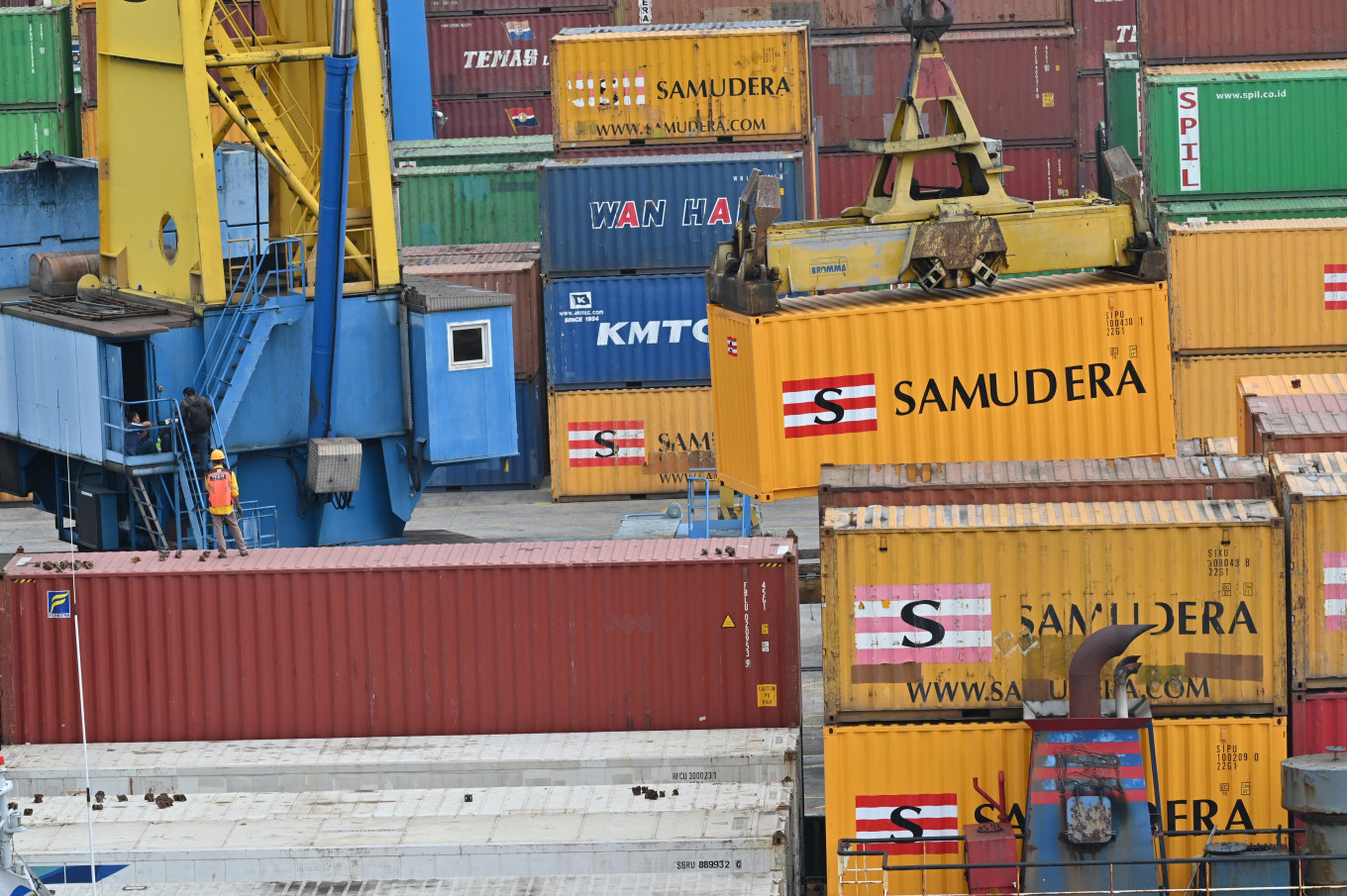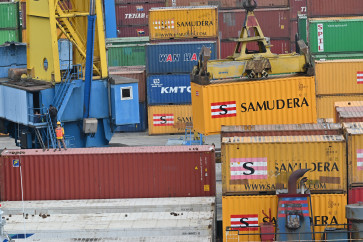Popular Reads
Top Results
Can't find what you're looking for?
View all search resultsPopular Reads
Top Results
Can't find what you're looking for?
View all search resultsASEAN strategic response to current geoeconomic shift
With many economies and sectors depending on the US market, the shock from tariff hike was immediate and has great potential impact on jobs.
Change text size
Gift Premium Articles
to Anyone
 A worker supervises loading and unloading services on March 28, 2023, at the Jakarta International Container Terminal in Tanjung Priok, North Jakarta. According to a recent Statistics Indonesia (BPS) report, Indonesian exports grew 7.13 percent year-on-year in September 2024 to US$23.56 billion, the highest figure since December 2022. (AFP/Adek Berry )
A worker supervises loading and unloading services on March 28, 2023, at the Jakarta International Container Terminal in Tanjung Priok, North Jakarta. According to a recent Statistics Indonesia (BPS) report, Indonesian exports grew 7.13 percent year-on-year in September 2024 to US$23.56 billion, the highest figure since December 2022. (AFP/Adek Berry )
I
magine waking up to discover that the rules of the game you long relied on, open markets and predictable trade policy based on multilateral agreement, no longer seem assured.
This is what Southeast Asian nations felt when United States President Donald Trump’s "reciprocal" tariff policy was announced early this year. ASEAN was actually exemplary in its initial response. Rather than retaliate or be divided, leaders of these nations chose to respond strategically by reaffirming the rules-based order, calling for constructive and coordinated engagement, including building regional and domestic resilience.
ASEAN economic ministers also assembled the ASEAN Geoeconomics Task Force (AGTF), consisting of senior officials and experts, to come up with appropriate policy recommendations. After more than four months of intensive work, the Task Force is ready to provide its recommendations.
Over the last four decades, ASEAN has benefited from globalization’s rising tide. Factories across the nations have fed into supply chains stretching to China, Japan, the US and other economies, a phenomenon coined by Richard Baldwin as Factory Asia. Free flow of goods, services and capital has made ASEAN one of the fastest-growing regions in the world.
But this development model relied on the assumption that global trade would remain open with predictable rules to prevent any economic power from using trade and economic policy as a weapon for geopolitical or geo-economic influence and destabilizing the system.
That assumption is currently under threat. First, trade wars shocked the system during the first Trump presidency, then the pandemic put global supply chains in jeopardy. Now, the US tariff scheme has broader impact beyond China, disrupting supply chains that are the mainstay of ASEAN economies.
With many economies depending on the US market, such as Vietnam’s textile or Malaysia’s electronic sector, the shock from tariff hike was immediate, with great impact on jobs. The impact goes beyond just market access to the US.


















